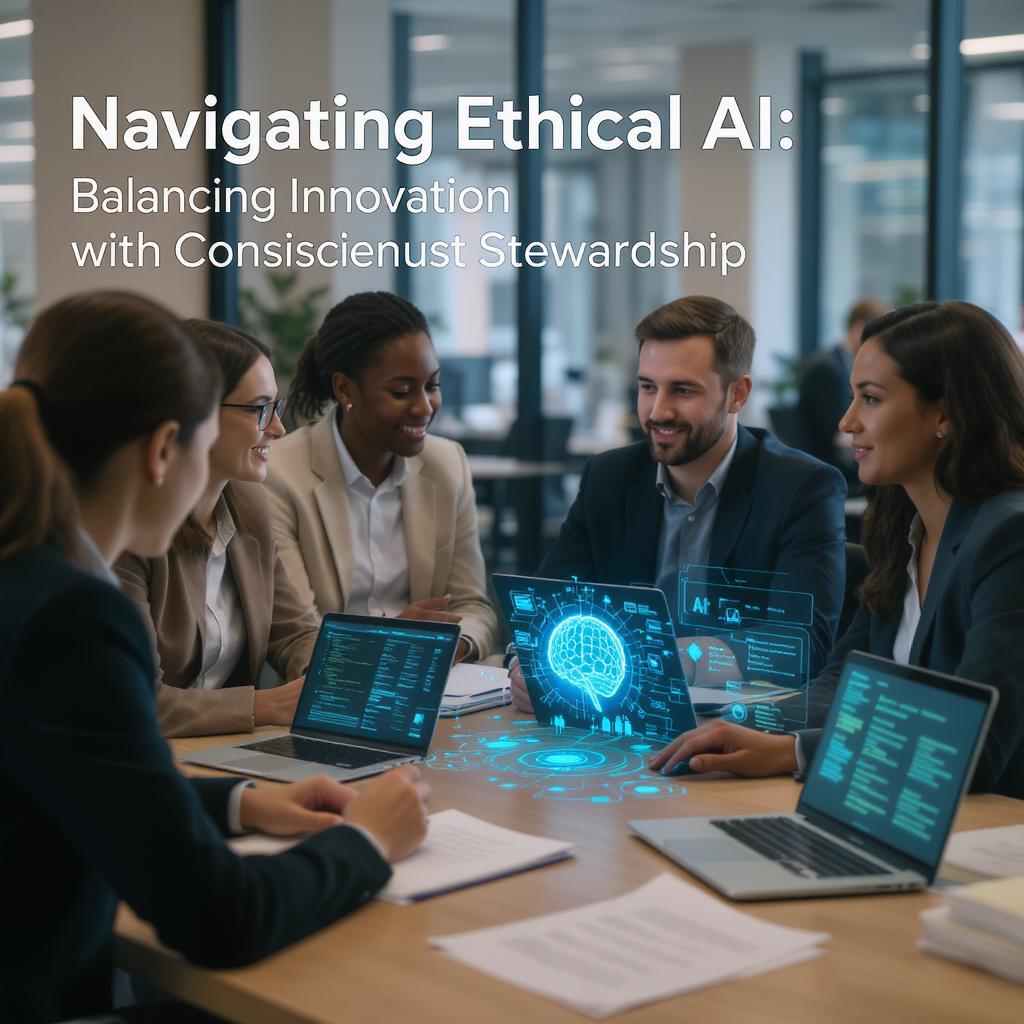Navigating Ethical AI: Balancing Innovation with Conscientious Stewardship

-
7/31/2025
What are we talking about? At its core, ethical AI refers to the conscientious development and deployment of artificial intelligence technologies, ensuring they align with moral values and societal norms.
Why is it important? In today's fast-paced technological landscape, the importance of ethical AI cannot be overstated. AI systems, increasingly embedded in our daily lives, hold immense potential to enhance productivity and quality of life, but must be carefully managed to prevent unwanted consequences.
How do you do it? The journey towards ethical AI begins with addressing fundamental considerations like bias, privacy, and transparency.
- Bias: Ensure datasets are diverse and representative to avoid reinforcing societal biases.
- Privacy: Implement stringent data protection measures, minimize personal data requirements in AI models, and foster transparency regarding AI operations.
- Transparency: Clearly communicate how algorithms work to enable accountability and understandability.
What if you don’t (or want to go further)? Without ethical considerations, AI could perpetuate bias and privacy violations. However, by adopting measures such as establishing clear ethical guidelines and fostering a culture of accountability, organizations can ensure responsible AI innovations. Partnering with ethical AI institutions and engaging in continuous learning helps stay at the forefront of developments in this space.
In the healthcare sector, AI-driven systems prioritize innovation and patient confidentiality, using techniques like data anonymization and differential privacy. In autonomous vehicles, AI must remain bias-free to uphold road safety. Similarly, financial and manufacturing sectors implement stringent ethical guidelines to prevent data misuse and ensure worker safety, respectively.
Case studies in the retail sector highlight the role of ethically compliant AI in enhancing customer experiences while respecting consumer data privacy. Such examples confirm that innovation and ethics can go hand in hand, ensuring that AI technologies enrich lives while upholding essential values.
International ethical guidelines play a critical role, with organizations like the European Union and IEEE setting frameworks for fairness, accountability, and transparency in AI. Companies like MPL.AI lead by embedding ethical guidelines in AI development, ensuring business outcomes positively contribute to society.
Transparency in AI processes bolsters trust and reliability among users by providing clarity and confidence through understanding AI decision-making. Accountability among developers and organizations is essential, encouraging ethical diligence and integrity in AI operations.
Despite challenges like data bias and complex regulations, opportunities for innovation include creating unbiased AI systems via transfer learning and explainable AI (XAI). Companies like Google and IBM showcase pioneering success in fair AI practices and explainability, setting industry standards for ethical compliance.
Looking forward, emerging trends involve ethical frameworks adapting to new challenges, AI becoming instrumental in real-world solutions, and fostering ongoing dialogue and collaboration within the tech community. These strategies ensure AI technologies remain empowering tools aligned with societal values.
As we explore AI's potential, adhering to ethical standards ensures these technologies act as trustworthy partners. Through collaborative efforts and the pursuit of ethical excellence, organizations like MPL.AI demonstrate how innovation and integrity can coexist, enhancing lives globally.
